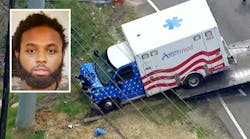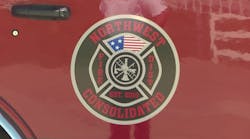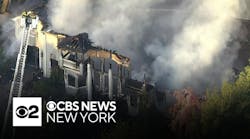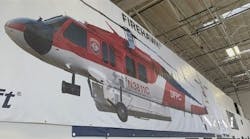When we were kids, I’d wager to say, many of us wanted to become firefighters. When we played, we often pretended to be firefighters and as we grew up, many of us in fact became part of the fire service, in some shape or form. But in this day and age, there are many grownups out there who are still pretending – and doing potential harm to the real brothers and sisters of the trade.
The first category falls under the “line-of-duty deceivers,” who operate in many ways. Unfortunately, it seems that hundreds of charities spring up before we have even buried our dead. While the location may be New York or Worcester or Prescott, websites promising to help the families of fallen firefighters develop faster than the local departments can sort out the validity of any.
The most immediate damage caused by those vermin who are running a pure and simple scam is that they deprive those who are truly deserving of assistance. The collateral damage is that when stories about false hopes hit the news – and many do – it discourages potential donors from providing funds to bona-fide organizations. Want to keep your computer busy for a while? Run a search on “9/11 charity scams.” You’ll be disgusted by the results.
While many states and even departments offer insurance or death benefits, one piece that is often missing from a line-of-duty-death plan is how to quickly accept donations. It may sound crass, but the best defense against is to have an existing agreement with a local bank and a means to quickly get the word out regarding how to officially contribute.
Another crook is the “phisher” who makes telephone calls to fire departments in an effort to obtain credit card accounts or other confidential personnel information. In the August 2012 issue of Firehouse®, the computerized version of this practice was discussed in “Security 2012: More Than a Lock and Key.” However, the same damaging information can be released just as easily over the phone. One scheme involves a “credit card representative” calling to validate information or a “state agency” needing an employee’s Social Security number to complete a registration.
Another scheme concerns gated communities. Many fire departments maintain gate codes as a means of saving time during responses. But how many communities have a truly secure system of checks and balances in place? Could the code be obtained by similar pretext, then used to access the complex for criminal purposes? Stranger things have happened.
Credentialing for public safety personnel must be looked at, and preferably on regional basis. How many departments have no credentialing policy or have multiple formats or issue identification cards to personnel at the beginning of their careers that never expire? The answer is “too many.” To start off with, everyone should have a photo ID that clearly identifies their department and position, which should be re-issued on a regular basis. All credentials should be turned in at separation from service. They should be difficult to reproduce in order to limit the chance of creation false documents with desktop publishing applications. Imagine the possibilities of fraudulently identified fire inspectors having nearly unfettered access to every business in your community? The potential for theft is staggering.
As for firefighters, some easily recognized document that identifies them as bona-fide first responders provides a number of benefits, including the right to pass into secured incident areas when required. The need for such access is another reason to create regionally recognized credentialing so that access control can be more easily maintained at large incidents. A good reference for applicable practices is the National Incident Management System Guideline for the Credentialing of Personnel (August 2011) available at http://www.fema.gov/pdf/emergency/ nims/nims_cred_guidelines_report.pdf. Other state models are available elsewhere on line.
Another breed that we must discuss is the outright imposter. Coming in different flavors with different reasons, each provides his or her unique set of problems. While those posing as law enforcement officers typically attract more attention, a number of incidents can be found where the protagonists portrayed firefighters instead. Some go as far as to modify their personal vehicles with lights, sirens and other accoutrements of the trade. One such “wanna-be” was recently relieved of command by an alert police officer observing his “code 3” response at a time and location where he knew no emergency existed. Some, it seems, are attracted solely by the need for speed.
Also counted within this group are random individuals who show up at major disasters to “volunteer” their skills. Claiming to be from another department – and sometimes even having their own turnout gear to seemingly substantiate their claim – they may be welcomed as a valuable resource rather than a security risk. Unfortunately, at a time when vigilance should be at its highest, it is sometimes ignored. Appropriate permissions aside, in the initial stages of a fire, it may be possible for someone to just walk up to a rig, grab a halligan and put themselves to work.
Among the “visiting fireman” fraternity are those who visit other departments around their state or country with tales of their heroics. Perhaps one of the most offensive groups of such individuals appeared after 9/11, claiming to have worked for days “on the pile” when they were nowhere involved in the recovery efforts. Just as there are padded resumes, fake diplomas and other false claims of glory in all professions, firefighting is no exception. The biggest difference may be, however, that our claims are often built on the foundation of another’s ultimate sacrifice.
Finally, no discussion about security would be complete without the mention of homeland security. What better way to gain access to disaster scenes and travel unfettered than as a firefighter? Online auction sites offer everything from apparatus and to turnout gear to badges – enough, in fact, to start a small, but fictional department. One company refuses to sell used apparatus to anyone other than another agency, with that factor in mind.
As times change and the ante is upped, departments must face new realties. Even patch collecting – a time-honored fire service tradition – must be looked at in a new light. And that light must shine brighter than ever on those who would pretend to be part of the family.
Barry Furey
Director
Raleigh-Wake Emergency Communications Center
Raleigh, NC
The writer, a Firehouse® contributing editor, is a 35-year veteran of the fire service. He has managed 911 centers and served as a volunteer fire officer in three other states.
We welcome feedback, views, reactions and observations. Please send letters to Speak Up, Firehouse Magazine, 3 Huntington Quadrangle, Suite 301N, Melville, NY 11747; fax them to 631-845-2741; or e-mail them to [email protected]. Letters may be edited for space and clarity. The opinions expressed here are solely those of the undersigned and do not represent endorsement by Firehouse® Magazine.





